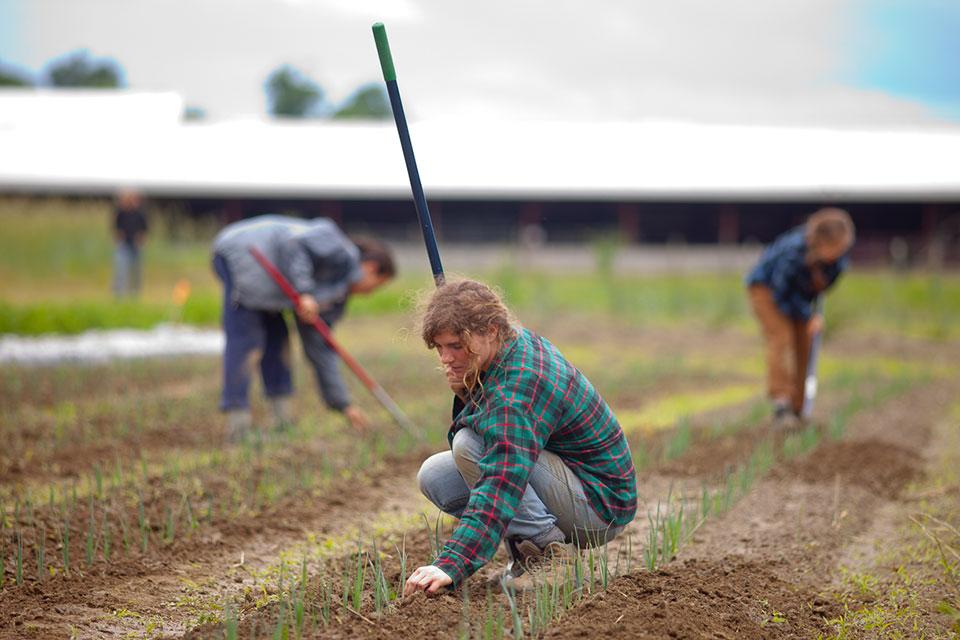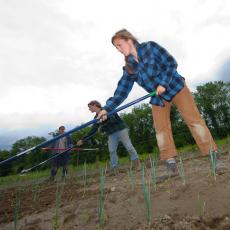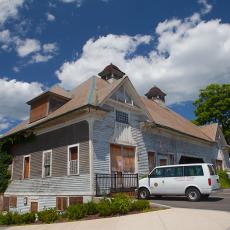Farming Finds a New Home at the Agricultural Learning Center
UMass Amherst has come a long way from its days as “Mass Aggie,” but a new initiative is helping restore at least part of the campus to its roots—literally. The 40-acre parcel of land formaly known as the Adams-Wysocki field is in the process of being transformed into the new Agricultural Learning Center, a working farm designed to give students hands-on training in everything from running a tractor to transplanting trees to making cheese from the milk of the cows they’ve raised.
“With the growth of the local food movement and increasing interest in sustainability, more and more students are looking into all aspects of farming,” says project manager Sandy Thomas. That includes not only owning and managing small, local farms but also bringing their expertise to organizations that address pressing global issues such as food policy and food security. Yet unlike previous generations of agriculturalists, most of today’s students didn’t grow up in a farming environment—a trend that’s beginning to see a reversal.
“The number of farms in Massachusetts has increased dramatically, mostly from an influx of new, young farmers,” says Stockbridge School of Agriculture director Wesley Autio. “We also have many young people beginning professions in the green industry. To be most successful in achieving their personal goals, all of these individuals must be trained in practice. The Agricultural Learning Center will be a spectacular complement to that training, adding an easily accessible location for hands-on experience.”
Accessibility is key. Previously, students desiring experiential training in agriculture had to leave campus for internships on local farms. “We want to bring students back to campus and have them learn right here,” says Thomas. “By the time they leave they’ll be well informed, well trained, and ready to work.”
In addition to gaining experience with fruit and vegetable crops, livestock, and landscape and turf management, students will benefit from the restoration of the historic Horse Barn, the last remaining barn on campus, which is being relocated to the center. Space will be allocated for classrooms as well as for community meetings and events, including public workshops on topics such as heirloom vegetable preservation and beekeeping.
While providing students with critical practical training is its primary objective, the Agricultural Learning Center also serves as a potent symbol of the region’s agricultural importance and a commitment to its sustainable future. “This timely effort preserves UMass farmland for learning by future generations of students, advances nationally recognized sustainability initiatives at UMass, and respects the importance of the university’s rich agricultural heritage,” says Center for Agriculture director Stephen Herbert. Classes at the center should be in full swing in time for the spring growing season.


